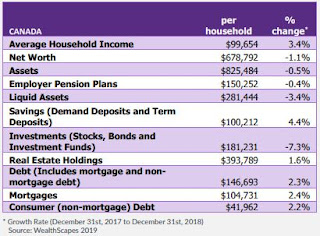"It's Been A Great Year For Markets"?
I actually read that. The "cheerleaders" want you to believe that it has been a great year for stock markets because in calendar 2019 the S&P 500 is up about 18%. Conveniently, however, they forget to include that the calendar year is far from over and that from the October 3 highs in 2018 to the December 24 lows in the same year (less than three months) it fell by 20%. In the actual year from September 25, 2018 to today the S&P 500 is only up by about 1.5%. So best be aware when advisors are talking up the stock market.
In fact, given the recent turn of events: blackface, impeachment in the U.S., Brexit and the parliamentary craziness in the U.K., global economic slowing, Iran, China, Climate and so on and so forth the likelihood of increased volatility has got potential.
As we (at High Rock) manage our and our client's money through a measure of risk (we manage risk first) which incorporates a move of one standard deviation (from the mean), we know that the S&P 500 has a multi-year, one standard deviation of about 12%. A 20% move (as that which occurred in 2018), is obviously greater than one standard deviation (a 1.7 standard deviation).
If you want to be exposed to that kind of risk in your portfolio, by all means, take it on. But you should be well aware of the risk that you are exposed to and expect market swings in line with that level of risk.
All of our clients can know the risk levels (by standard deviation) in their portfolios, do you and your advisor know yours?
Ask the tough questions!
And do not be misled by the manipulation of the data that might paint a picture of a rosier world than is the one that actually exists.










